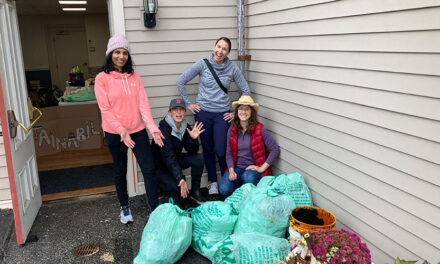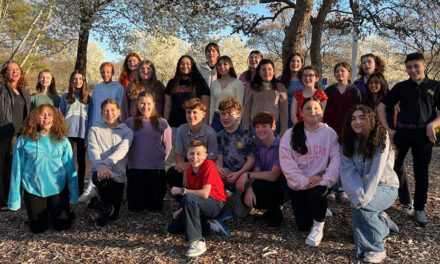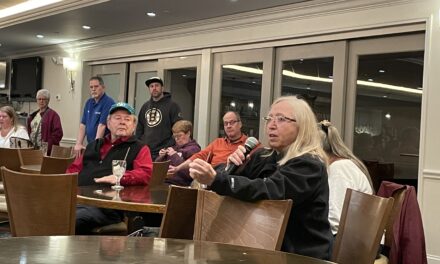Published September 26, 2019
By MAUREEN DOHERTY
Editor
Can we talk?
In a much more meaningful way than the flippant catchphrase of the late comedienne Joan Rivers, the North Reading Community Impact Team (CIT) really wants to get serious with all of us about some very sobering statistics.
In the past 3 1/2 years, there have been 60 overdoses in this small community with seven of them resulting in fatalities that devastated the family and friends left behind.
So how best can meaningful conversations be achieved on the topic of addiction to opioids? By no longer pretending that the opioid crisis in this town, this state, this country only affects “other people.”
These “other people” are your sons and daughters, your husbands and wives, your neighbors, your friends, your cousins, your grandfather, your aunt, your co-worker, your Uber driver, your accountant, your personal trainer, the person who serves you a cup of Joe in the morning, that guy sleeping in his car in the parking lot at Walmart who has lost everything to his addiction, and quite possibly, the person staring back at you in the mirror each morning.
It’s time to get real, North Reading. Even if you have never touched the stuff personally you are not immune to the societal ills it has caused. Someone in your sphere of influence at this very moment is suffering greatly, either struggling to stay clean or struggling to pick up the pieces of the lives left shattered by a drug overdose.
Despair doesn’t help. But talking just might.
Luckily, you live in a community that cares.
The town’s Drug Free Communities Grant coordinator, Amy Luckiewicz, and her team at the CIT have put together a stellar program, “Communities That Talk.” It’s free and this is your open invitation to come on down to the Performing Arts Center at North Reading High School next Wednesday night, October 2 and simply open the lines of communication for 90 minutes — from 6:30 to 8 p.m. — with a panel of experts to talk about how we can get out from under this monster together.
You’ll learn how addiction “highjacks the brain,” how to spot the “red flags,” and why those who struggle with substance abuse more than likely use multiple drugs at once.
You have the power to remove the stigma felt by those who need to seek help for themselves or their loved one to break the cycle of addiction just by being less apathetic.
Luckiewicz believes staying vigilant about the latest trends in substance use and passing that education along to the community at large is vital.
Laura Miranda, the town’s Mental Health/Substance Use Clinician who helps connect families with the resources needed for their loved one to get clean commented in a statement: “We know that one obstacle for people to get help is stigma, and we also know that one way to fight stigma is to talk about the scope of the problem. People tell us all the time that they are unaware of substance use issues in North Reading. We hope that ‘Communities That Talk’ provides some clarity there.”
“This presentation is not theoretical,” added North Reading Youth Substance Use Prevention Coalition Chair Marci Bailey in a statement. “This is real data about our North Reading youth and real resources in our community to help students and families who need assistance.”
Take the first step in erasing the substance use stigma that stands as an obstacle to families seeking the help they need by attending the “Communities That Talk” presentation October 2.




